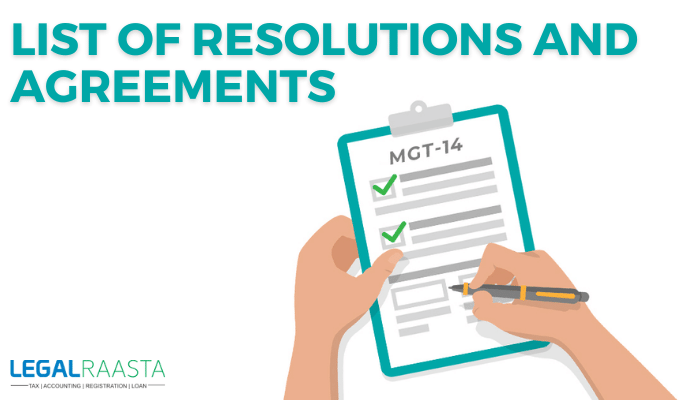Registrar of Companies India: Roles, Functions, Address List
The Companies Act of 1956, gives the Ministry of Corporate Affairs the powers to appoint a regulatory body the (Registrar of Companies ) which is in charge of Company Incorporation as well as LLP Registration across the various states and union territories in the country. Presently, 22 ROCs are in operation all throughout the country. Some states also have the provisions of multiple ROCs operational for eg. Tamil Nadu and Maharashtra. The Registrar also indicates that the LLPs in India, comply with the ROC Compliances.
The Registrar of Companies is in charge of maintaining a registry of records with regards to the registered companies and allows information access to the general public concerning payment of the stipulated fee. Administratively, the Registrar is under the control of the Central Government aided by the support of the Regional Directors. As of this day, the supervision of the Registrar is being overlooked by a total of 7 regional directors maintaining smooth operations in their relevant regions. Let’s look at the operations, roles as well as functions of the RoC in detail. You can also find the RoC office addresses for the various regions at the bottom.
Registrar of Companies
Functions of the RoC
- RoC supervises the registration of the company also called the company incorporation procedure.
- The RoC is responsible for the regulation and reporting of various compliances and documents by the company. In addition to this, RoC is also in-charge of issuing information about the various shareholders and directors of the registered company to the concerned government officials and governing bodies.
- RoC plays a pivotal part in promoting a good, ethical and promotional business cultures among the various member companies registered under it.
- RoC’s approval is absolutely necessary for a company to even come into existence. The Registrar provides the incorporation certificate to the companies successfully registered with the authority and once the company has been incorporated and registered with the RoC it can only cease to exist only when its name is officially struck off from the registrar.
- The RoC holds the power for enquiring supplementary information from the companies like books of accounts etc. It is also noteworthy that the RoC wields the authority to search the premises (raid) the offices of the company if it encounters any suspicion of unlawful activities.
- Registrar of Companies can also file a petition for the winding up of a company.
- The Role of the ROC continues even after the incorporation of the company. A company might need to intimate the details of changes in the company structure or the updatation in the business activities of the company and/or change of registered office of the company. These changes need to be intimated to the ROC as soon as possible
Company Registration under ROC
Any company wishing to operate within legal bounds in India has to get itself registered under the RoC rules and regulations. A company is considered to be a legally registered company when it has received the certificate of incorporation from the registrar.
The statutory procedure to register a company requires that the companies submit a wide range of documentation as per the compliance requirements of that particular business structures. Some of these documents include Memorandum of Association (MoA) and the Articles of Association (AoA). Along with this, companies have to file the pre-incorporation agreement for director’s/managing director’s appointment and a document signed by an authorized individual declaring that all the compliances and requirements for the company incorporation have been met by the proposed company.
After receiving the said documents and authenticating the registrar of companies inputs the name of the company in their register and release the certificate of incorporation to the concerned company. Along with the company’s incorporation certificate, the ROC also issues a commencement of business certificate. Every Public Limited Company has to get this certificate before they begin any business activities.
ROC Refusal Rights
The Registrar of Companies in India has reserved the right to refuse to incorporate a company which creates an issue. The refusal of the company incorporation could stem from a variety of reasons. If the Registrar has an objection with any of the clauses mentioned in the Memorandum of Association of the company i.e. Name, Object, Registered Office, Capital and Liability clauses they might refuse to incorporate the company. The Registrar has also been instructed not to incorporate any company with an objectionable name. Of course in addition to any objectionable name, if the company’s objective seems unlawful to the registrar are obligated to refuse the registration of that particular company.
Resolution Filing with ROC
The provisions of Section 117, of the Companies Act of 2013 dictates that each and every resolution passed by the companies has to be filed with the registrar within a maximum of 30 days. The Registrar of Companies has to record all resolutions hence passed by companies as part of their responsibilities. The Companies Act of 2013 has also specified penalty and fines in case a company fails to file any resolutions with the registrar within the stipulated time. Basically, companies have to intimate ROC about any and all activities that might be happening with regards to change in directors or managing directors, issuing a prospectus, Appointment of Sole-Selling agents or voluntary winding up etc.
LegalRaasta’s Company Formation Package
Get Registered Easily!
ROC Regional Addresses
RoC ANDHRA PRADESH & TELANGANA
Sh. N. Krishnamoorty (ROC Hyderabad)
2ND Floor, Corporate Bhawan,
GSI Post, Tattiannaram Nagole, Bandlaguda
Hyderabad – 500 068
Phone: 040-29805427/29803827/29801927
Fax: 040-29803727
roc.hyderabad@mca.gov.in
RoC ASSAM , MEGHALAYA, MANIPURA, TRIPURA, MIZORAM, NAGALAND & ARUNACHAL PRADESH
Sh. Lakshmi Prasad K (ROC Shillong)
Morello Building ,
Ground Floor
Shillong – 793001
Phone: 0364-2504093
roc.shillong@mca.gov.in
RoC BIHAR & JHARKHAND
Sh. U.S Patole (ROC Patna)
Maurya Lok Complex, Block A
Western Wing, 4th Floor,
Dak Banglow Road
Patna – 800001
Phone: 0612-222172
Fax: 0612-222172
roc.patna@mca.gov.in
Sh. Swadhin Barua (ROC Ranchi)
House No-239 , Road No-4
Magistrate Colony, Doranda
Ranchi: 834002, Jharkhand
Phone: 0651-2482811/2480801
RoC CHATTISGARH
Sh. R.K. Sahu (ROC cum OL for Bilaspur )
Ist Floor,
Ashok Pingley Bhawan,
Municipal Corporation,
Nehru Chowk, Bilaspur- 495001
Chattisgarh
Phone: (07752)-250092(D),250094
Fax: (07752)- 250093
roc.bilaspur@mca.gov.in
RoC DELHI & HARYANA
Sh. D. Bandopadhyay(ROC Delhi)
A) 4th Floor, IFCI Tower,
61, Nehru Place,
New Delhi – 110019
Phone: 011-26235707, 26235708, 26235709
Fax: 011-26235702
roc.delhi@mca.gov.in
For Physical Verification Of Documents :
B) Plot No. 6,7 & 8,Basement,
IICA Campus, Sector-5, IMT-Manesar,
Gurgaon, Haryana
Phone : 124-2291520
GOA ,DAMAN & DIU
Sh. V. P. Katkar (ROC Goa)
Company Law Bhawan
EDC Comlex, Plot No. 21
Patto, Panaji, Goa-403 001
Phone/Fax(Off) 0832-2438617 / 2438618
roc.goa@mca.gov.in
RoC GUJARAT
Sh. Vijay Khubchandani (ROC Ahmedabad)
ROC Bhavan , Opp Rupal Park Society,
Behind Ankur Bus Stop,
Naranpura, Ahmedabad-380013
Phone: 079-27437597,
Fax 079-27438371
roc.ahmedabad@mca.gov.in
RoC JAMMU AND KASHMIR
Sh. O.P. Sharma (AOL (acting ROC cum OL) J&K)
Hall No.405-408,
South Block, Bahu Plaza,
Rail Head Complex,
Jammu – 180012
Phone: 0191-2470306
Fax: 0191-2470306
roc.jammu@mca.gov.in
RoC KARNATAKA
Sh. M. R. Bhat (ROC Banglore)
‘E’ Wing, 2nd Floor
Kendriya Sadana
Kormangala, Banglore-560034
Phone: 080-25633105 (Direct),
080-25537449/25633104
Fax: 080-25538531
roc.bangalore@mca.gov.in
RoC KERALA
Sh. A Sehar Ponraj (ROC Ernakulam)
Company Law Bhawan, BMC Road
Thrikkakara
Kochi – 682021
Phone: 0484-2423749/2421489
Fax: 0484-2422327
roc.ernakulam@mca.gov.in
RoC MADHYA PRADESH
Sh. J.N. Tikku (ROC Gwalior )
3rd Floor, ‘A’ Block, Sanjay Complex
Jayendra Ganj, Gwalior
Phone: 0751-2321907
Fax: 0751-2331853
roc.gwalior@mca.gov.in
RoC MAHARASHTRA
A) Mumbai
Dr. T. Pandian (ROC Mumbai)
100, Everest,
Marine Drive
Mumbai- 400002.
Phone: 022-22812627/22020295/22846954
Fax: 022-22811977
roc.mumbai@mca.gov.in
B) Smt. Vijaya Khandare
(ROC Pune)
Registrar Of Companies
PMT Building,
Pune Stock Exchange,
3rd Floor, Deccan Gymkhana,
Pune-411004
Phone: 020-25521376
Fax: 020-25530042
roc.pune@mca.gov.in
RoC ORISSA
Sh. B. Mishra (ROC Cuttack)
Corporate Bhawan, 3rd Floor,
Plot No. 9 (P), Sector: 1,
CDA, Cuttack: 753014
Phone: 0671-2365361, 2366958, 266952,
Fax: 0671-2305361
roc.cuttack@mca.gov.in
RoOC PUDUCHERRY
Sh. C. M. Karlmarx (ROC Puducherry)
No. 35 First Floor
Elango Nagar
Puducherry – 605011
Phone: 0413-2240129
roc.pondicherry@mca.gov.in
RoC PUNJAB, CHANDIGARH & HIMACHAL PRADESH
Sh. Santosh Kumar (ROC Chandigarh and Shimla)
Corporate Bhawan, Plot No.4 B,
Sector 27 B, Madhya Marg,
Chandigarh – 160019
Phone: 0172-2639415,2639416
Fax: 0172-2639416
roc.chandigarh@mca.gov.in
RoC RAJASTHAN
Sh.R.K.Meena (ROC Jaipur)
Corporate Bhawan
G/6-7, Second Floor, Residency Area
Civil Lines, Jaipur-302001
Phone: 0141-2222465,2222466
Fax: 0141-2222464
roc.jaipur@mca.gov.in
RoC TAMIL NADU
Shri Sridhar Parmarthi
a) Chennai
Block No.6, B Wing 2nd Floor
Shastri Bhawan 26,
Haddows Road,
Chennai – 600034
Phone: 044-28270071
Fax: 044-28234298
roc.chennai@mca.gov.in
b) Coimbatore
Sh. N.Ramanathan (ROC Coimbatore)
Registrar Of Companies
Stock Exchange Building, II-Floor,
683, Trichy Road, Singanallur,
Coimbatore – 641 005
Phone: (0422) – 2318170 (D), 2318089, 2319640
Fax: (0422) – 2318089
roc.coimbatore@mca.gov.in
RoC UTTAR PRADESH & UTTARAKHAND
Sh. S.P.Kumar (ROC Kanpur & Nainital)
10/499 B, Allenganj,
Khalasi line
Kanpur-208002
Phone: 0512-2550688
Fax: 0512-2540423
roc.kanpur@mca.gov.in
RoC WEST BENGAL
Sh. B. Mohanty(ROC Kolkata)
Nizam Palace
2nd MSO Building
2nd Floor, 234/4, A.J.C.B. Road
Kolkata – 700020
Phone: 033-2287 7390
Fax 033-22903795
roc.kolkata@mca.gov.in









